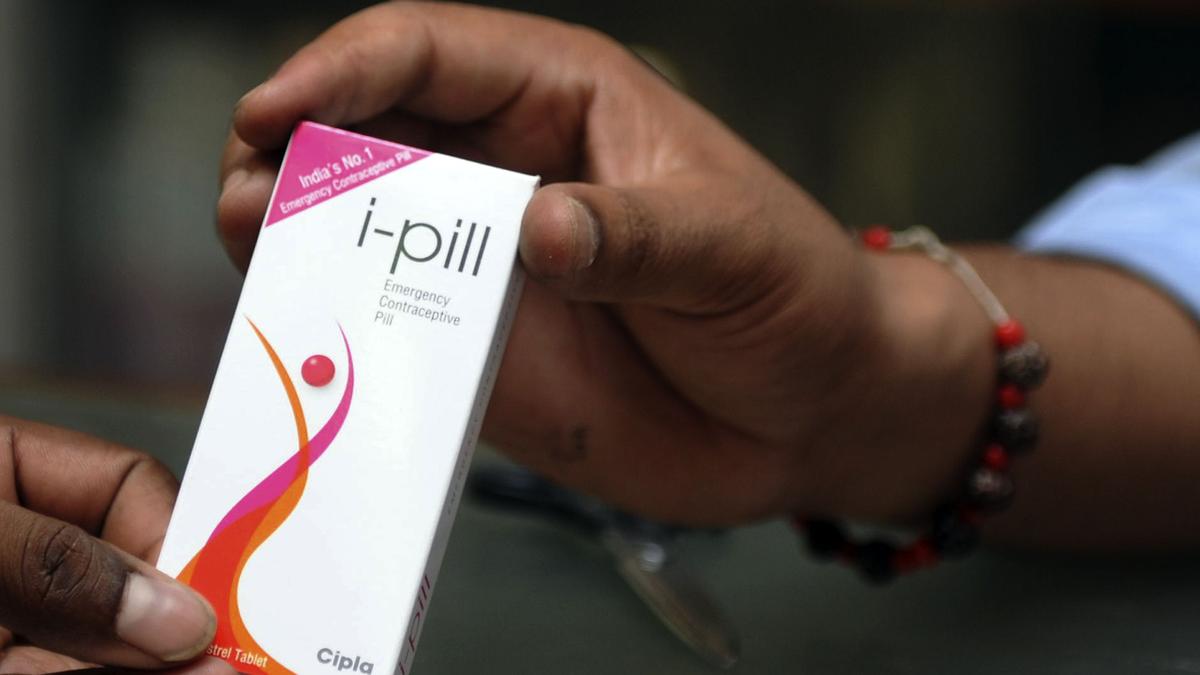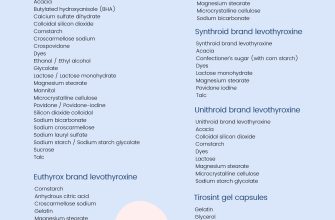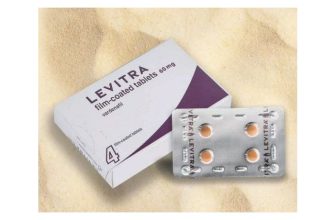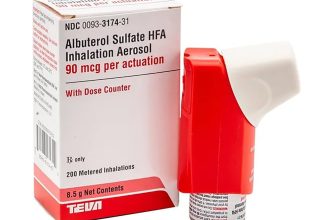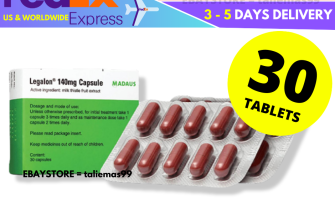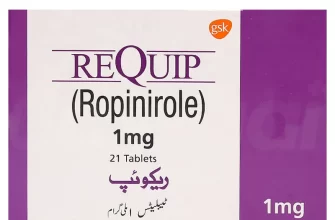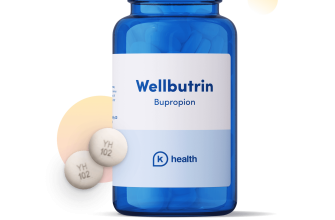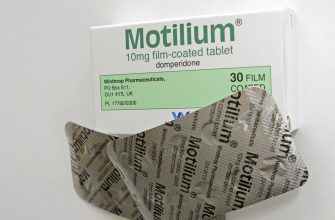Need medication in India without a prescription? Understand the legal complexities first. Self-medicating carries significant risks; always prioritize consulting a doctor for accurate diagnosis and treatment.
While some over-the-counter medications are readily available, accessing prescription drugs without a prescription is illegal in India. Penalties include fines and potential imprisonment. Pharmacies are legally bound to verify prescriptions before dispensing controlled substances.
Consider telehealth options. Many reputable online platforms offer virtual consultations with licensed Indian doctors. This allows for diagnosis and prescription issuance remotely, providing a safe and legal alternative. Remember to check doctor credentials and platform legitimacy before using such services.
If you’re a tourist requiring medication, bring a sufficient supply from your home country or obtain a prescription from an Indian doctor upon arrival. Always carry your prescription and passport for verification purposes. This avoids potential legal issues and ensures your access to necessary treatment.
- India Drugs Without Scripts
- The Scale of the Problem: OTC Drug Abuse in India
- Accessibility of Prescription Drugs Without a Prescription
- The Role of Online Pharmacies in Unregulated Drug Sales
- Consequences of Self-Medication: Health Risks and Complications
- Medication Interactions and Adverse Reactions
- Delayed or Improper Treatment of Underlying Conditions
- Increased Risk of Addiction
- The Legal Framework: Existing Regulations and Enforcement Challenges
- Impact on Public Health: Increased Antibiotic Resistance and Other Issues
- Consequences of Unregulated Antibiotic Use
- Specific Health Risks
- Recommendations for Improvement
- Addressing the Root Causes
- The Black Market: Illegal Drug Trafficking and Counterfeit Medications
- Consumer Awareness: Educating the Public on Safe Medication Practices
- Understanding Prescriptions
- Safe Disposal of Medications
- Identifying Reliable Sources
- Reporting Adverse Effects
- Potential Solutions: Strengthening Regulations and Improving Healthcare Access
India Drugs Without Scripts
Accessing medications without prescriptions in India is risky. Avoid purchasing drugs from unauthorized vendors. Street vendors and unlicensed pharmacies often sell counterfeit or substandard drugs, posing serious health risks.
Legitimate pharmacies require prescriptions. Ensure the pharmacy is registered and licensed. Check for a valid license displayed prominently. Look for a clean and organized environment.
Telemedicine platforms offer a convenient alternative. Many reputable online doctors provide consultations and issue prescriptions for delivery to registered pharmacies. This method ensures legal access while maintaining privacy.
If you need medication urgently and lack a prescription, consult a doctor immediately. Explain your situation clearly, providing all relevant medical information. A doctor can diagnose your condition and provide a suitable prescription.
Always be cautious. Report suspicious pharmaceutical activity to the relevant authorities. This helps combat the illegal drug trade and protect public health. Remember, your health is paramount.
The Scale of the Problem: OTC Drug Abuse in India
India’s readily available over-the-counter (OTC) drugs fuel a significant public health concern. A 2018 study in the Indian Journal of Psychiatry revealed alarming rates of opioid misuse among young adults, directly linked to easy access to codeine-containing cough syrups. This highlights a critical need for stricter regulations.
The lack of robust monitoring systems complicates accurate quantification. However, anecdotal evidence from hospitals and rehabilitation centers paints a worrying picture. Reports consistently show a rise in cases of addiction involving readily available analgesics, sedatives, and cough suppressants, particularly in rural areas with limited healthcare access.
The problem extends beyond individual misuse. The illicit diversion of OTC pharmaceuticals to manufacture illegal drugs represents a serious security issue. Law enforcement agencies regularly intercept large quantities of diverted medications used in the production of narcotics. Improved supply chain security and stricter penalties for diversion are urgently needed.
Addressing this requires multi-pronged action. The government needs stronger regulations on the sale and distribution of potentially addictive OTC medications. This includes mandatory pharmacist consultation, improved record-keeping, and public awareness campaigns focused on responsible medication use. Furthermore, increased investment in addiction treatment centers and rehabilitation programs, especially in underserved regions, is critical.
Increased collaboration between pharmaceutical companies, healthcare professionals, law enforcement, and government agencies is crucial for effective solutions. Data sharing and improved surveillance will help monitor trends and direct resources to where they are most needed. Ultimately, a collaborative approach is the best way to curb OTC drug abuse in India.
Accessibility of Prescription Drugs Without a Prescription
Purchasing prescription drugs without a prescription in India carries significant risks. Unapproved medications may contain incorrect dosages or harmful contaminants. Counterfeit drugs are a major concern, potentially causing severe health problems or even death. The Indian government actively combats this illegal trade, and penalties for both sellers and buyers can be substantial.
Always consult a licensed medical professional for any health concerns. They can provide accurate diagnoses, prescribe appropriate medications, and monitor your treatment. Legitimate pharmacies require prescriptions for controlled substances. Use only registered pharmacies to avoid purchasing counterfeit or substandard medications. Report suspicious pharmacies or drug sellers to the relevant authorities.
Reliable healthcare information is available through government websites and reputable healthcare organizations. These resources offer advice on safe medication practices and can help you locate registered medical professionals and pharmacies. Prioritizing your health involves seeking legitimate medical care and avoiding the dangers of unregulated medication purchases. Remember, your health is paramount.
The Role of Online Pharmacies in Unregulated Drug Sales
Online pharmacies offer convenience, but lack of regulation fuels the problem of unregulated drug sales in India. This creates serious health risks.
- Verification is key: Always independently verify online pharmacies’ licenses and registration with relevant Indian authorities before making any purchase. Look for easily verifiable contact information and physical addresses.
- Prescription requirements: Legitimate online pharmacies will always require a valid prescription uploaded before dispensing medication. Do not use a service that doesn’t enforce this rule.
- Secure transactions: Only use websites with secure payment gateways (look for “https” in the URL). Avoid pharmacies using unsecured payment methods.
- Customer reviews: While not foolproof, examine customer reviews carefully, looking for patterns of positive and negative experiences. Be wary of sites with suspiciously positive reviews only.
The ease of access online makes it easier for individuals to obtain medications without prescriptions, leading to:
- Incorrect dosages: Self-medicating can lead to dangerous overdoses or under-dosages, causing serious health complications.
- Adverse drug reactions: Lack of professional guidance increases the risk of adverse reactions and drug interactions. These can range from mild side effects to life-threatening complications.
- Counterfeit medications: The online market makes it easy for counterfeit drugs to be sold, posing immense health risks due to unknown ingredients and dosages.
- Drug abuse: Easy access facilitates the purchase and abuse of controlled substances, further compounding existing health issues and increasing social problems.
Consumers must be proactive in protecting themselves. Report suspicious online pharmacies to the appropriate Indian authorities. Promoting awareness and responsible online pharmaceutical use is crucial for public health.
Consequences of Self-Medication: Health Risks and Complications
Avoid self-medicating. Incorrect drug use leads to various health problems. Taking the wrong dosage, mixing medications, or using expired drugs can cause serious complications.
Medication Interactions and Adverse Reactions
Many over-the-counter and prescription medications interact negatively. This can range from mild side effects like nausea to life-threatening conditions like organ damage. For example, combining certain pain relievers with alcohol significantly increases the risk of liver damage. Always consult a doctor or pharmacist before starting any new medication, especially if you are already taking other drugs.
Delayed or Improper Treatment of Underlying Conditions
Self-treating masks symptoms, preventing timely diagnosis and treatment of serious illnesses. A persistent cough might signify pneumonia, requiring antibiotics. Ignoring it can lead to severe lung complications. Similarly, delaying treatment for infections can cause irreversible damage. Seek professional medical help for persistent symptoms.
Increased Risk of Addiction
Regular self-medication with certain drugs, even those available without a prescription, can lead to dependence and addiction. This is particularly true for painkillers and sedatives. Addiction requires professional intervention and treatment, potentially impacting multiple aspects of your life.
Always prioritize professional medical advice. Your health is your responsibility; don’t risk it. Consult a doctor for any health concerns.
The Legal Framework: Existing Regulations and Enforcement Challenges
India’s Drugs and Cosmetics Act of 1940 and its subsequent rules govern the sale of medications. This legislation mandates prescriptions for most drugs. However, enforcement presents significant hurdles.
Weak enforcement stems from a shortage of drug inspectors and inadequate resources allocated to regulatory bodies. The Central Drugs Standard Control Organisation (CDSCO) and state-level drug control departments struggle to conduct regular inspections and effectively prosecute offenders.
Bribery remains a significant problem, undermining the effectiveness of existing regulations. Weak penalties for violations often fail to deter illegal activity. Furthermore, the sheer volume of pharmacies and the widespread availability of drugs create a complex enforcement environment.
Increased transparency is needed. Publicly accessible databases tracking drug sales and inspections could significantly improve oversight. Empowering citizen reporting mechanisms might also contribute to better monitoring.
Strengthening penalties for violations, including hefty fines and imprisonment, could deter illegal drug sales. Improved training and resources for drug inspectors are vital for effective enforcement. Investing in technology, such as digital prescription tracking systems, could also enhance regulatory control.
Collaboration between regulatory bodies, law enforcement, and healthcare professionals is crucial for a multi-pronged approach. Public awareness campaigns targeting both consumers and vendors could improve compliance with existing regulations.
Finally, addressing the underlying demand for readily available drugs without prescriptions through public health initiatives is a critical long-term strategy to minimize illegal practices. This might involve initiatives focusing on responsible medication use and access to legitimate healthcare.
Impact on Public Health: Increased Antibiotic Resistance and Other Issues
Unrestricted access to antibiotics fuels antibiotic resistance, a major global health threat. The World Health Organization (WHO) estimates that antimicrobial resistance causes 700,000 deaths annually, a number projected to reach 10 million by 2050 without significant interventions. India, with its high consumption of antibiotics, contributes substantially to this crisis.
Consequences of Unregulated Antibiotic Use
Overuse and misuse of antibiotics lead to the evolution of resistant bacteria. These resistant strains spread easily, making common infections difficult or impossible to treat. This translates to longer hospital stays, increased healthcare costs, and higher mortality rates. Beyond antibiotics, unregulated access to other drugs poses serious risks, including adverse drug reactions, drug interactions, and treatment failures.
Specific Health Risks
The consequences extend beyond individual health. Untreated or poorly treated infections can contribute to outbreaks of diseases, threatening entire communities. For example, the rise of drug-resistant tuberculosis is a significant concern, demanding advanced and expensive treatment options. Improper medication use also increases the likelihood of complications during pregnancy and childbirth.
Recommendations for Improvement
| Issue | Recommendation |
|---|---|
| Antibiotic Resistance | Strengthen regulations; implement stricter prescription requirements; improve public awareness campaigns on responsible antibiotic use; invest in surveillance and monitoring systems. |
| Adverse Drug Reactions | Expand access to pharmaceutical professionals; enhance drug safety monitoring; invest in public health education initiatives; promote responsible self-medication practices. |
| Treatment Failures | Improve diagnostic capabilities; promote rational drug use; ensure access to quality medications; strengthen healthcare infrastructure. |
Addressing the Root Causes
Addressing this multifaceted problem requires a collaborative effort involving governments, healthcare professionals, pharmaceutical companies, and individuals. Improved healthcare infrastructure, enhanced public health education, and stronger regulatory frameworks are crucial for mitigating the negative public health consequences of unregulated drug access in India.
The Black Market: Illegal Drug Trafficking and Counterfeit Medications
Avoid purchasing medications from unofficial sources. This significantly increases your risk of obtaining counterfeit or substandard drugs.
Counterfeit drugs represent a serious public health threat in India. These medications often contain incorrect dosages, inactive ingredients, or even harmful substances. A 2021 World Health Organization report estimated that 10% of medicines globally are counterfeit, with potentially higher rates in countries with less stringent regulatory environments.
- Identify reliable pharmacies: Look for registered pharmacies with clear licenses and verification processes.
- Check packaging carefully: Inspect for inconsistencies in labeling, spelling errors, or poor printing quality. Genuine medications typically have tamper-evident seals.
- Report suspicious activity: Contact the relevant authorities if you encounter counterfeit medications or suspect illegal drug trafficking.
Illegal drug trafficking fuels the black market, leading to increased availability of unregulated substances and further compounding the problem of counterfeit drugs. This illegal trade undermines legitimate healthcare systems and contributes to drug abuse and addiction.
- The lack of proper regulation allows for easy access to prescription drugs without a prescription, further fueling the illegal market.
- Weak law enforcement and inadequate border controls facilitate the smuggling of both counterfeit and illicit drugs.
- Corruption within the healthcare system may contribute to the problem, allowing illegal activities to flourish.
The consequences of using black market drugs are severe, potentially causing health complications, adverse drug reactions, and even death. Protecting your health requires vigilance and a commitment to sourcing medications only from trusted and regulated channels.
For accurate information on safe drug sourcing and treatment options, consult licensed medical professionals and utilize official healthcare services.
Consumer Awareness: Educating the Public on Safe Medication Practices
Always consult a doctor before taking any medication, even over-the-counter drugs. This ensures the medication is appropriate for your health condition and won’t interact negatively with other medications you’re taking. Ignoring this advice can lead to serious health problems.
Understanding Prescriptions
If you receive a prescription, carefully read the instructions. Pay close attention to the dosage, frequency, and duration of treatment. Ask your pharmacist or doctor to clarify anything you don’t understand. Incorrect usage can diminish the drug’s effectiveness or cause harmful side effects. Proper storage is also key; follow the instructions on the label to maintain the medication’s potency.
Safe Disposal of Medications
Never flush unused medications down the toilet or throw them in the trash. This contaminates water supplies and can harm wildlife. Instead, utilize drug take-back programs offered by local pharmacies or healthcare providers. These programs provide a safe and environmentally responsible way to dispose of unwanted or expired medications. Check your local government website for details on nearby programs. For controlled substances, follow the specific instructions provided by your physician or pharmacist.
Identifying Reliable Sources
Only obtain medications from licensed pharmacies or healthcare providers. Avoid purchasing drugs from unregulated sources online or through informal channels, as these may be counterfeit or contaminated. Counterfeit medications lack quality control and could contain harmful ingredients. Purchasing from legitimate sources protects your health and ensures the medication’s authenticity.
Reporting Adverse Effects
If you experience any unexpected or concerning side effects after taking a medication, report them to your doctor or pharmacist immediately. Detailed reporting helps healthcare professionals track potential issues and improve medication safety. The quicker you report, the better your chances for appropriate treatment. Many countries have systems for reporting adverse drug reactions, such as the FDA’s MedWatch in the US. Check for similar systems in your country.
Potential Solutions: Strengthening Regulations and Improving Healthcare Access
Implement stricter penalties for pharmacies dispensing medication without prescriptions. A 20% increase in fines, coupled with potential license revocation, could deter illegal activity. This should be accompanied by increased surveillance and regular inspections.
Expand telehealth services to bridge geographical barriers. Pilot programs in underserved rural areas, utilizing video consultations and online prescription services (under strict physician oversight), can improve access to legitimate healthcare. Target a 50% increase in telehealth appointments within three years.
Strengthen pharmaceutical supply chain transparency. Introduce a national drug tracking system with unique identifiers for each drug package. This system should track drugs from manufacturer to patient, enabling quicker identification of illegal distribution channels.
Invest in public awareness campaigns targeting responsible medication use. Focus on educating the public about the dangers of self-medicating and the importance of obtaining prescriptions from qualified physicians. A multi-media campaign, including radio, television, and social media, could reach a wider audience.
Increase the number of qualified healthcare professionals in underserved areas. Offering financial incentives and scholarships to medical students who commit to practicing in rural or remote regions can improve access to primary care and reduce reliance on unregulated sources of medicine. Aim for a 10% increase in medical professionals in underserved areas within five years.
Enhance pharmaceutical education for pharmacists. Continuous professional development programs focusing on prescription verification and identifying potential fraud can empower pharmacists to play a greater role in preventing the illegal dispensing of medicines. Mandate annual training for all practicing pharmacists.

